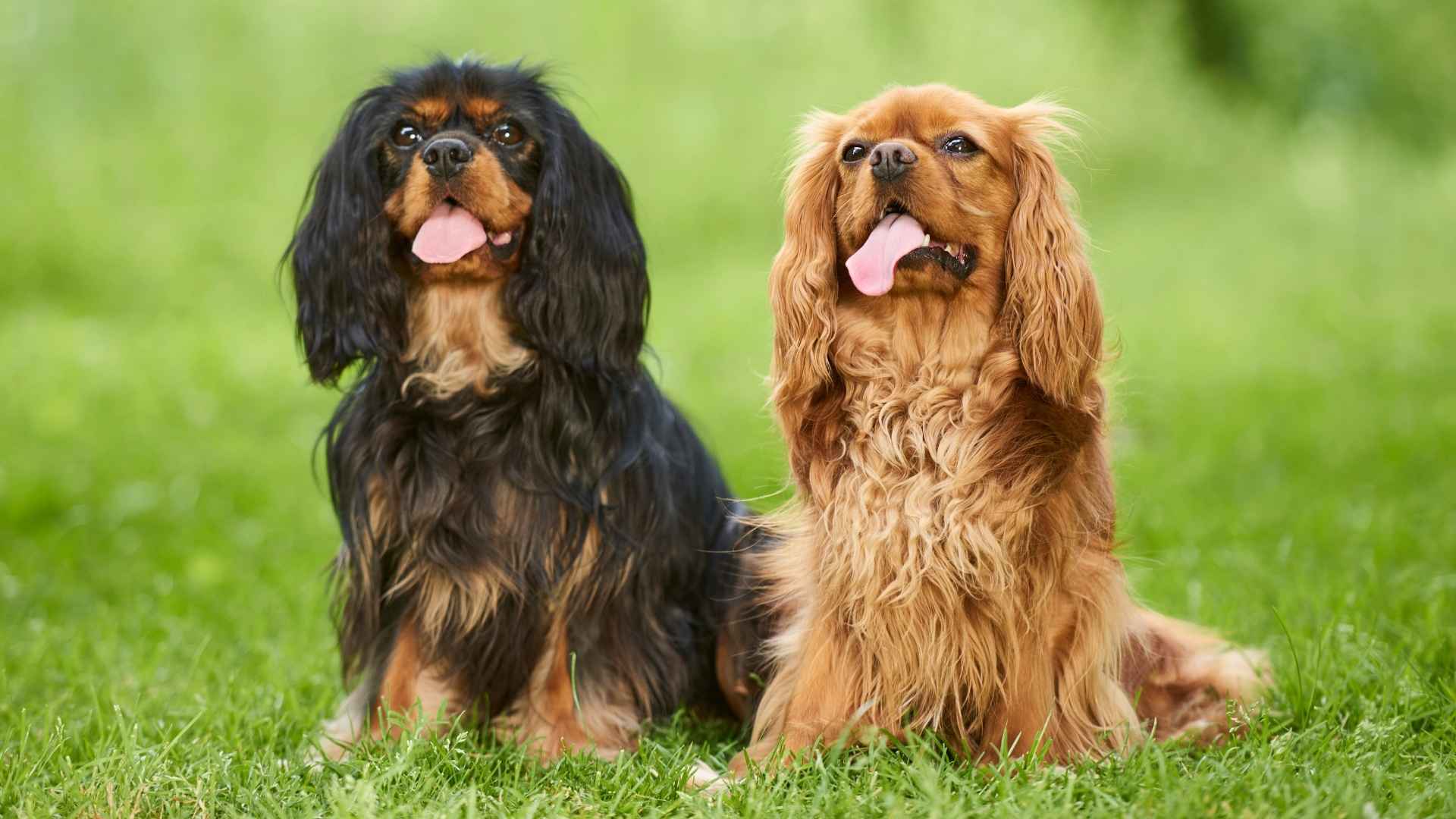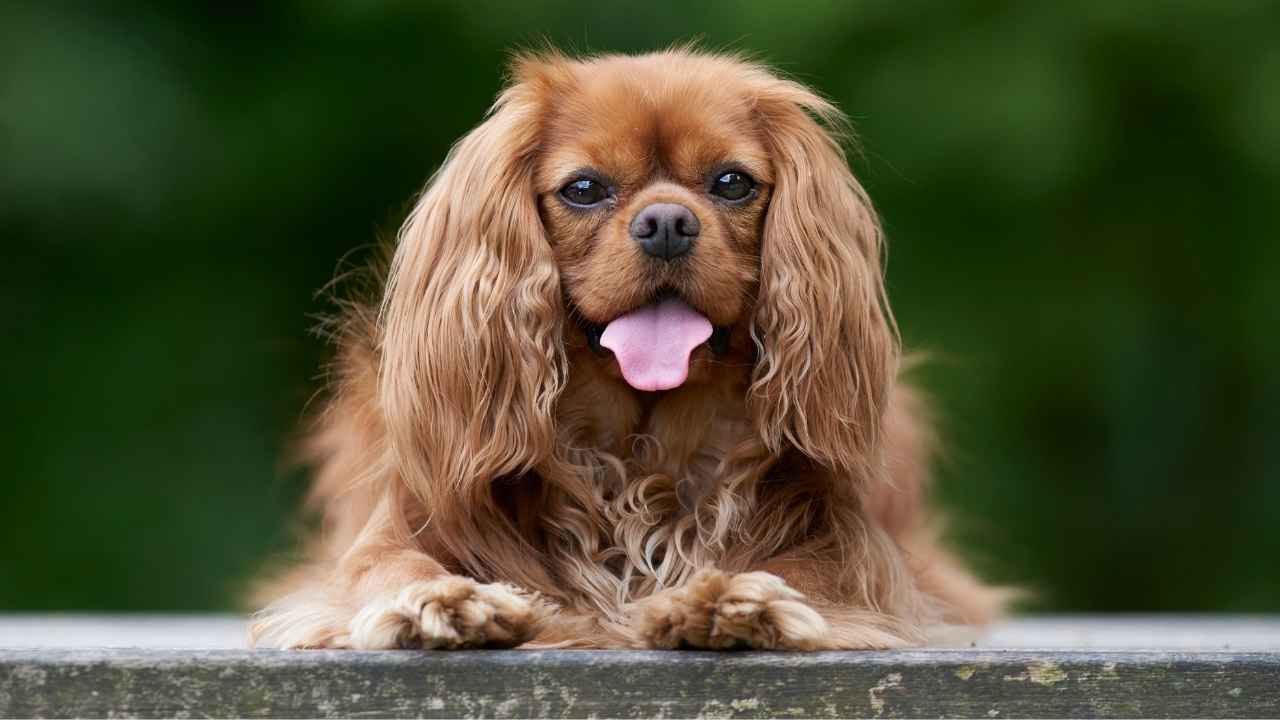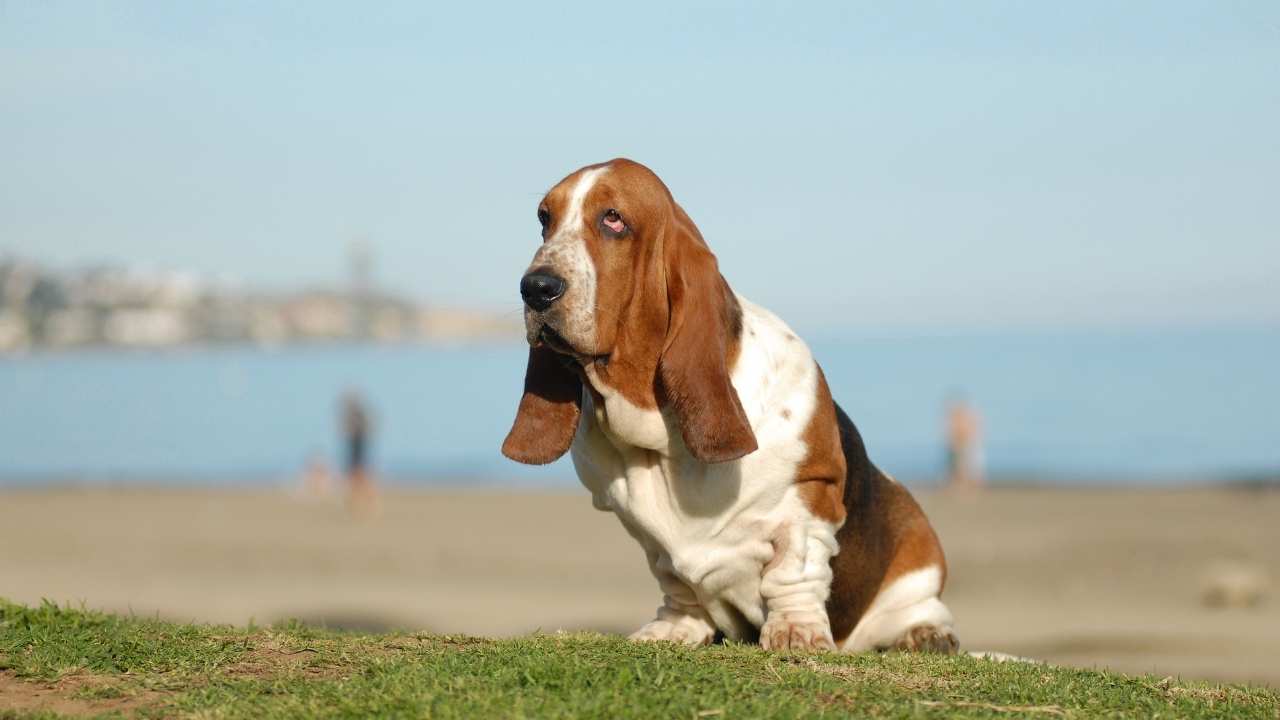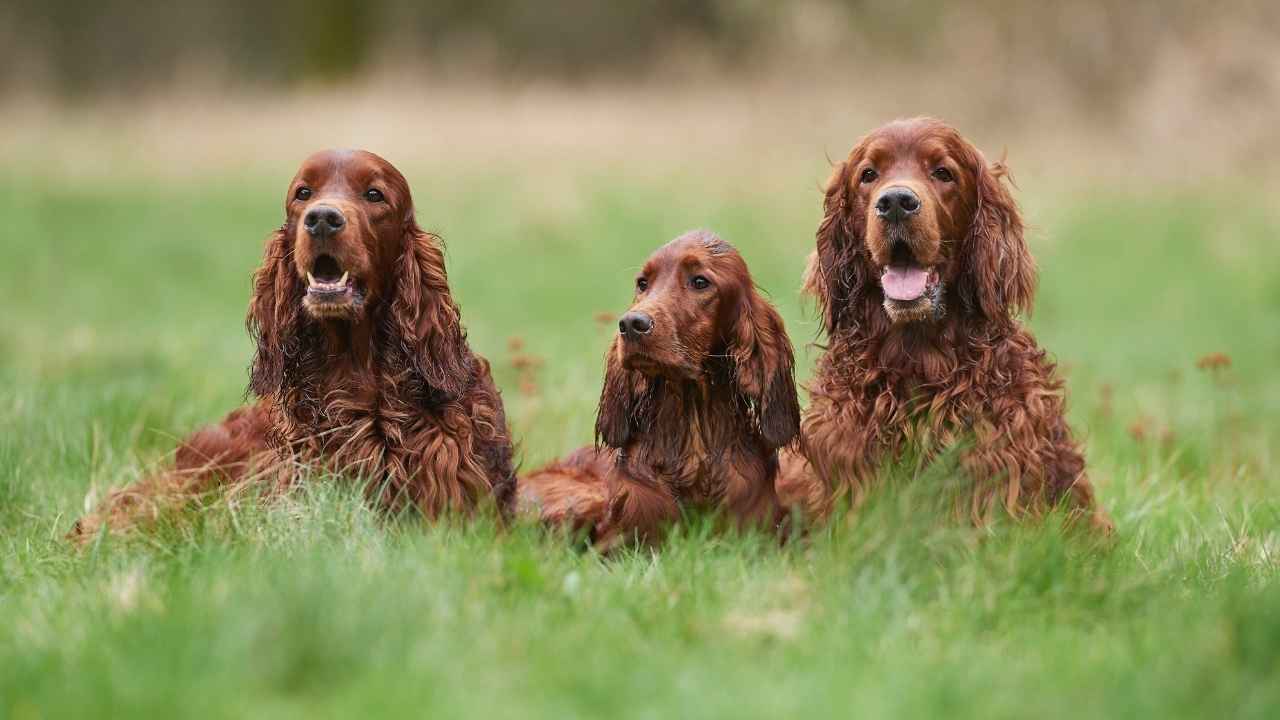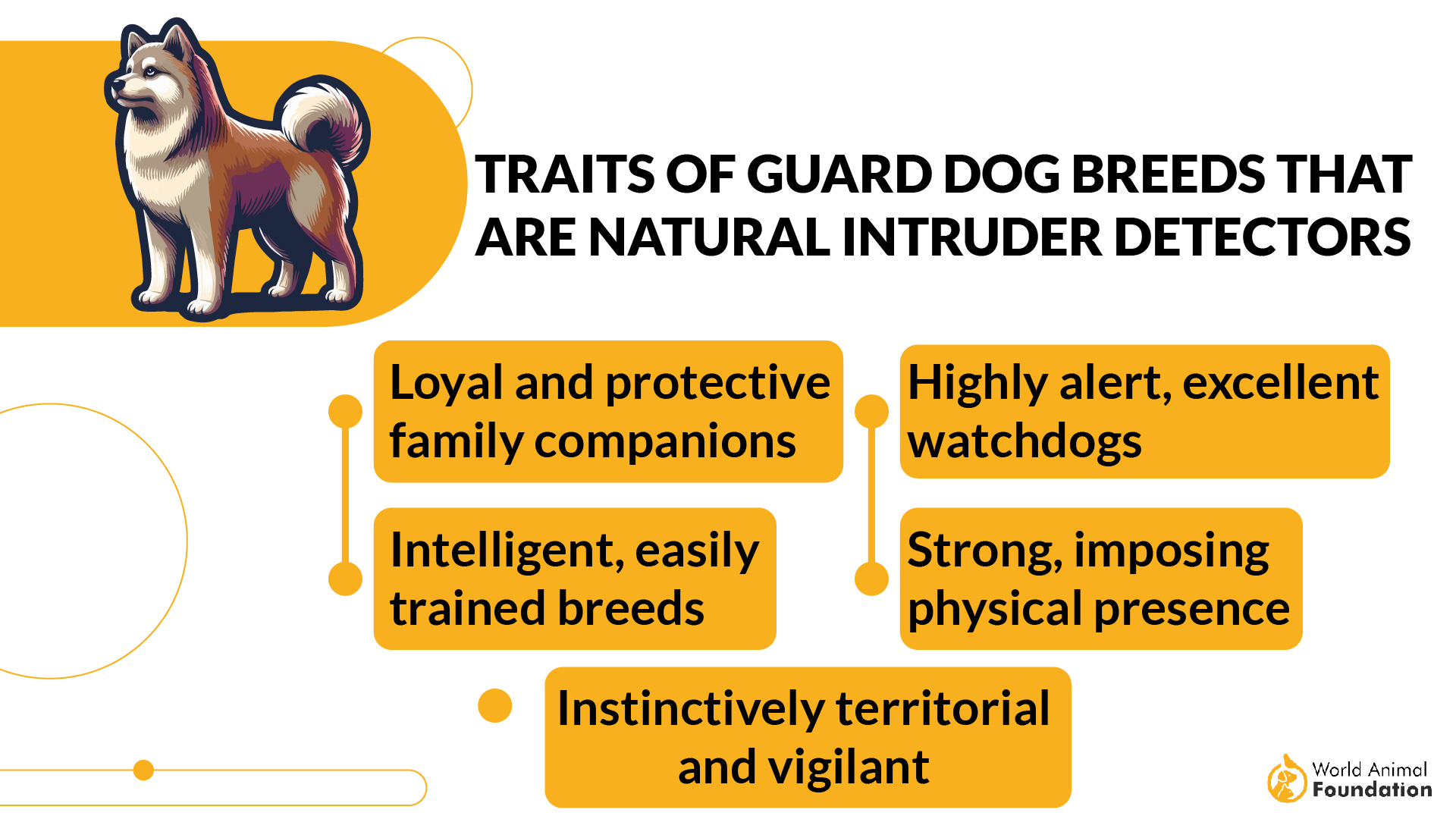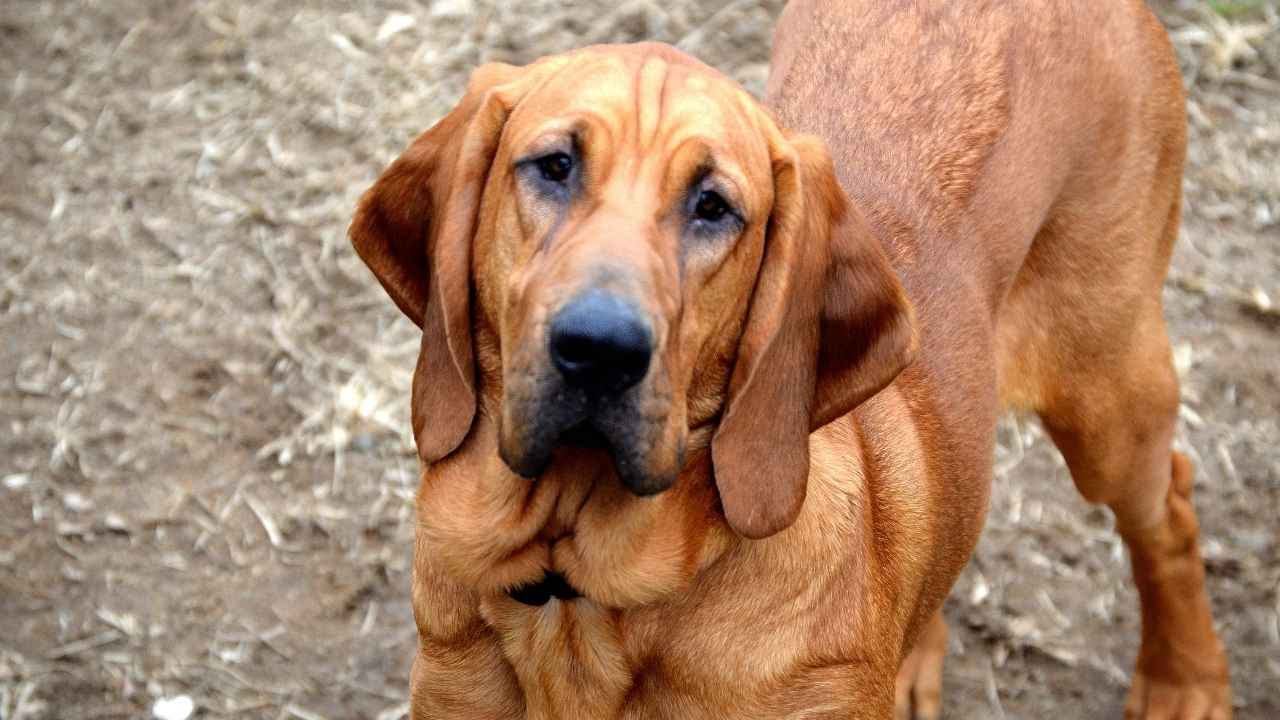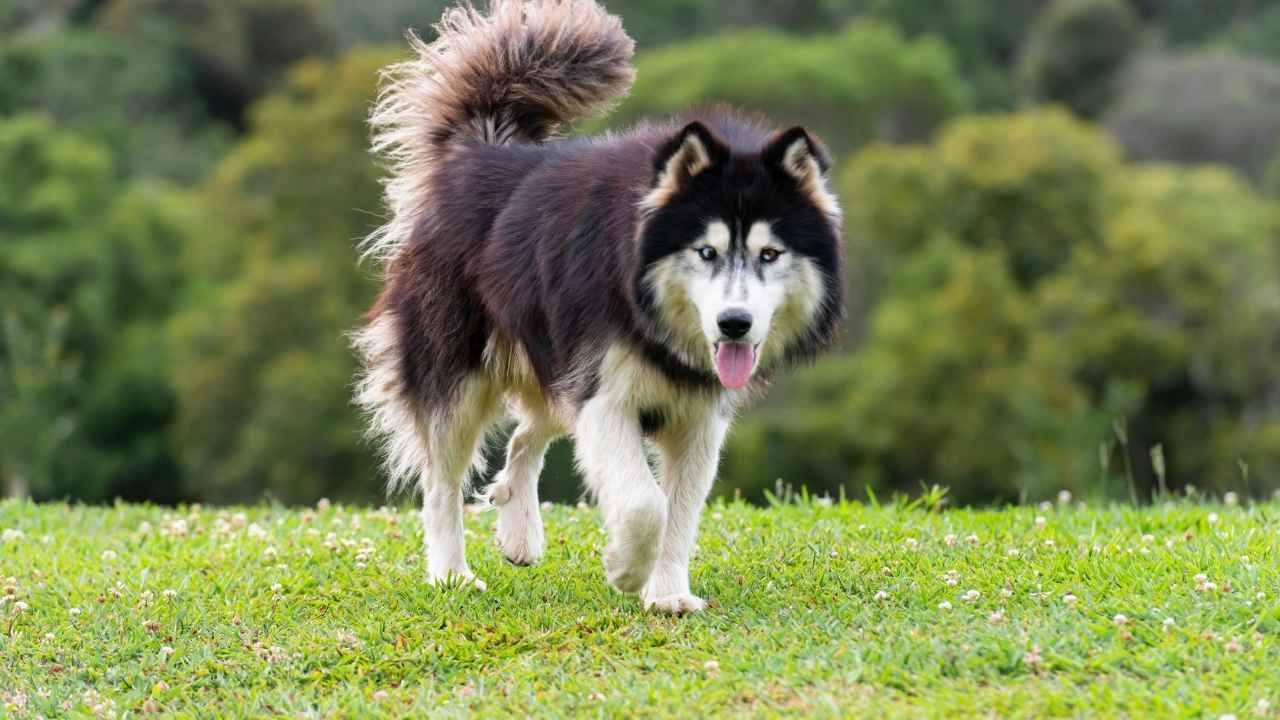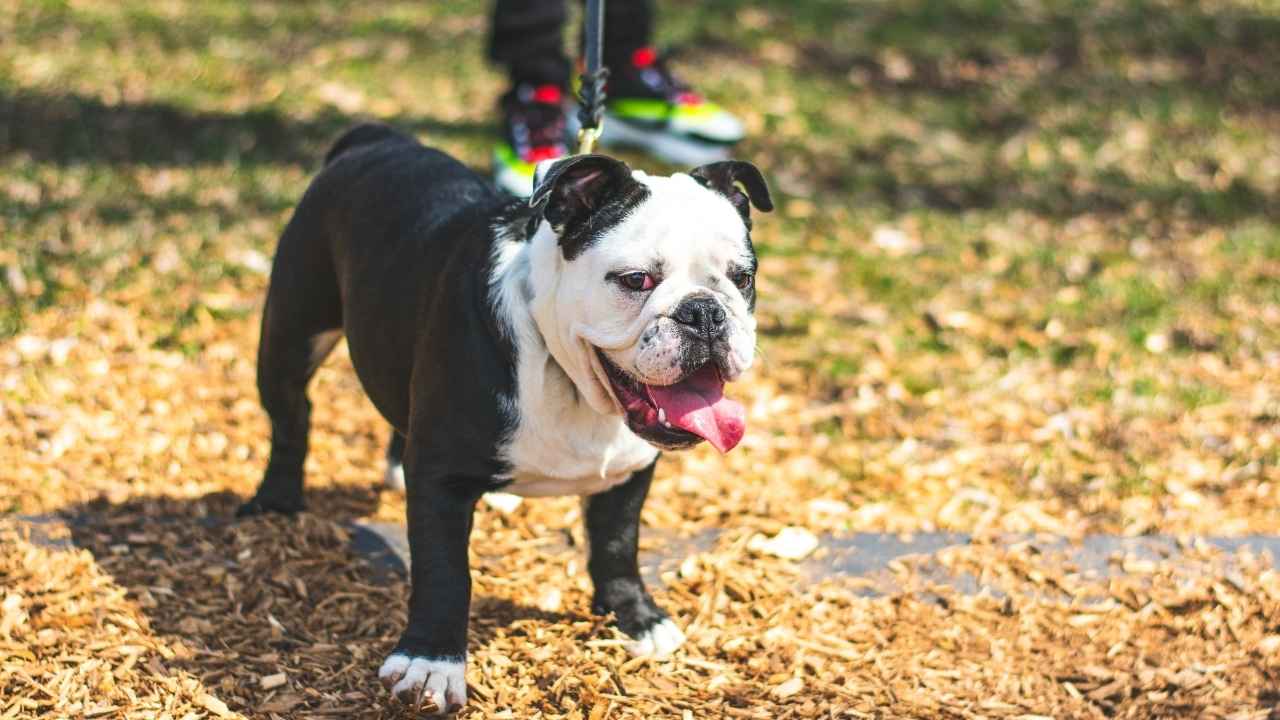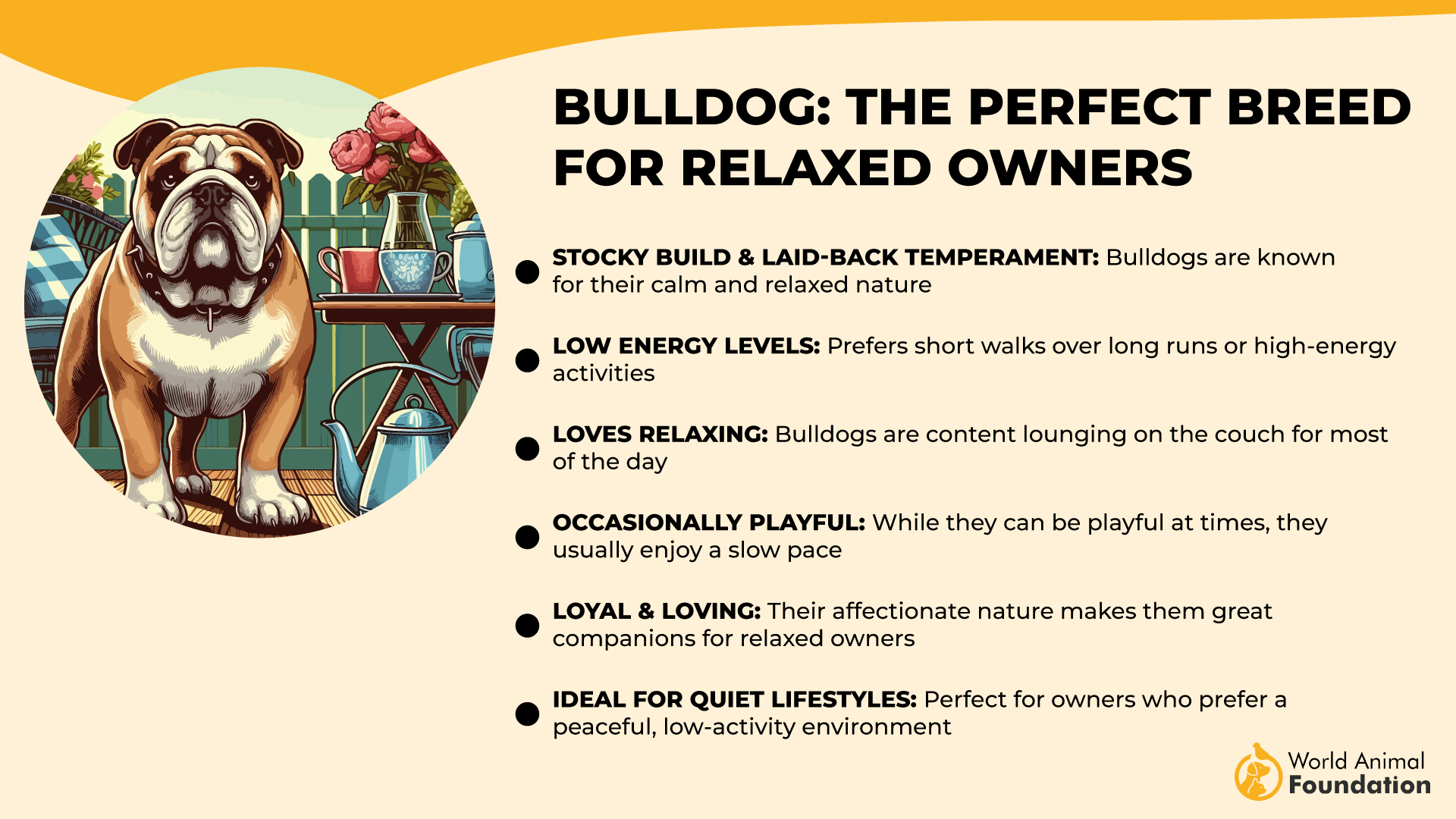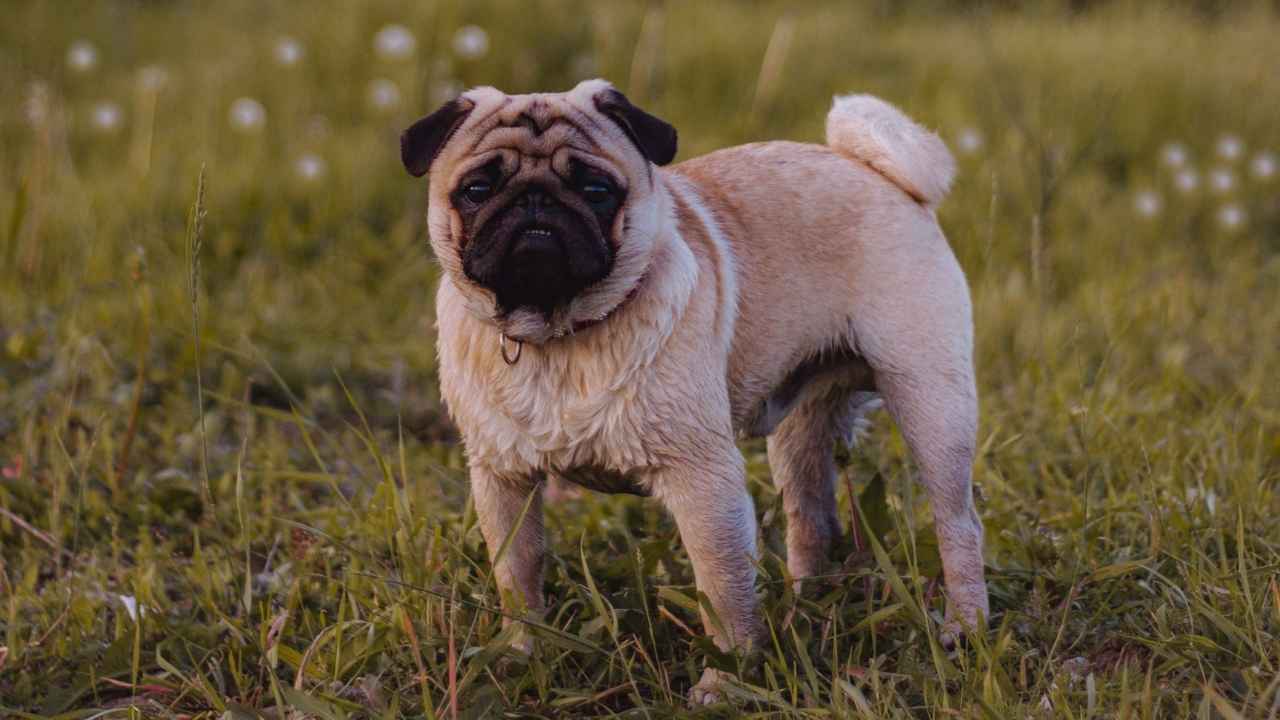When it comes to choosing a guard dog, many people envision a vigilant, imposing canine that can deter intruders and safeguard their homes. However, not all dog breeds possess the instincts or temperament required for such duties. In fact, some breeds are more likely to greet strangers with a wagging tail than a warning bark. This article explores seven of the worst dog breeds for guarding, highlighting their friendly dispositions, affable natures, and the reasons why their lovable traits make them better suited as companions rather than protectors. Prepare to meet the most amiable “guard” dogs around!
Not every dog is cut out to be a guard dog. While we might picture a big, intimidating pup ready to fend off intruders, the truth is, that some breeds are more likely to wag their tails and roll over for belly rubs than sound the alarm. It’s easy to assume that size equals protection, but looks can be deceiving—some of the fluffiest, friendliest dogs are simply not built for guarding.
A good guard dog needs more than just presence; they need to be alert, cautious, and quick to identify who’s a friend and who’s not. But some dogs, no matter how strong or imposing they appear, just don’t have the instincts for the job. Whether it’s their overly social personality, lack of bark, or just a natural love for humans—these breeds are better suited for companionship than security.
If you’re looking for a little humor and some lighthearted honesty, we’re diving into the dog breeds that make the worst guard dogs ever. After all, not every pup can be a protector, and that’s perfectly okay!
Worst Guard Dogs Ever
1. Cavalier King Charles Spaniel
Cavalier King Charles Spaniels are the epitome of love and gentleness, but when it comes to guarding a home, they’re simply not equipped for the role. These small, affectionate dogs would much rather curl up in your lap than patrol the house. With their friendly and trusting nature, Cavaliers are more likely to shower a stranger with affection than to bark or intimidate.
Their petite size and non-threatening demeanor mean they’re not suited for protection, but they more than makeup for it with their companionship. Cavaliers thrive on human interaction and are perfect for families, especially those with children.
Cavalier King Charles Spaniels, while loving and gentle, have a strong instinct to chase anything that moves, including vehicles, which makes them ill-suited for developing “street-smarts.”
Though typically calm and quiet, WebMD notes that Cavaliers can become vocal or destructive if bored or stressed. They might bark to alert you when someone’s at the door, but their reaction is more about excitement than protection.
2. Basset Hound
Basset Hounds, with their droopy ears and soulful eyes, may look like they’d be perfect for keeping an eye on things, but in reality, they’re about as far from a guard dog as you can get. These laid-back pups would rather snooze on the couch than patrol the yard. Known for their sweet and gentle personalities, Orvis states that Basset Hounds tend to view everyone—friends, strangers, and even intruders—as potential pals, not threats.
While they do have an incredible sense of smell, it often works against them in this role. Instead of keeping watch, they’re more likely to wander off, nose to the ground, following an interesting scent trail. They might bark a little if someone new shows up, but it’s more of a polite hello than a warning growl. Intimidation? Not in their vocabulary.
Basset Hounds are perfect for families looking for a low-energy, easygoing companion. They’re fantastic for first-time dog owners who aren’t interested in demanding training or high-energy play. But be mindful—they’re prone to weight gain, so regular walks and a balanced diet are a must to keep their joints healthy. While you shouldn’t rely on them for home security, their loyalty, charm, and easy temperament make them a joy to have around.
3. Irish Setter
Irish Setters are known for their stunning appearance and joyful personality, but when it comes to guarding a home, they’re far from the ideal choice. These dogs are incredibly sociable and thrive on interaction, welcoming everyone they meet—including strangers.
If an intruder were to enter, an Irish Setter would likely greet them with a wagging tail and a friendly demeanor rather than any form of suspicion or defense. Their absence of protective instincts makes them wonderful companions but ineffective guard dogs.
With their intelligence and trainable nature, Irish Setters excel in activities like dog sports and hunt tests, where their obedience and energy truly shine. They’re fantastic family pets, known for their playful and affectionate temperament, though their size and exuberance might be a bit overwhelming for very small children. Ultimately, Irish Setters are best suited for families seeking a lively, loving companion—not a guardian for the home.
4. Bloodhound
Bloodhounds, famous for their exceptional sense of smell, were originally bred for tracking and hunting but are now widely used as sniffer dogs by police and authorities around the globe. Their remarkable noses can follow scent trails over 12 days old, making them unmatched in scent detection. At home, though, Bloodhounds are affectionate and relaxed, thriving as gentle and loving family pets.
As guard dogs, however, Bloodhounds fall short. Their lack of territorial instincts and love for human company mean they’re more likely to greet a visitor warmly than deter them. Some may bark when someone approaches, but many remain silent, making them unreliable watchdogs. Despite their large size, Bloodhounds are non-aggressive and can be shy, which highlights the importance of early socialization to help them feel confident in various situations.
Bloodhounds are known for their strong bond with their families, often mirroring the emotions of their human pack. While their gentle nature makes them great companions, their size and enthusiasm can be a bit overwhelming for smaller children, so supervision is a must. Once on a scent trail, their focus and determination are unmatched, but this same drive can make them a challenge to manage.
5. Siberian Husky
Siberian Huskies are charming, playful, and full of personality, but if you’re looking for a guard dog, this isn’t the breed for you. Known for their outgoing and friendly nature, Huskies are more likely to greet intruders with excitement and playfulness than to ward them off. They’re natural pranksters and excellent family dogs, but their lack of aggression and love for everyone makes them less suited for protection. In fact, if a burglar brought along a sled, a Husky might happily help them escape with all your belongings!
While Huskies aren’t effective as guard dogs, their loud barking and tendency to alert their owners about unusual activity can act as a mild deterrent. However, their true talents lie in their energy and love for adventure.
According to Britannica, this breed needs regular exercise in a secure area, as their independent nature and tendency to roam mean they may not return when called. Without proper activity, Huskies can become destructive, so they’re best suited for active families who can meet their needs.
6. English Bulldog
English Bulldogs, with their stocky build and distinctive wrinkled faces, may look tough, but don’t be fooled—they are some of the most docile and affectionate dogs you’ll meet. Bred long ago for aggression, Bulldogs have since transformed into gentle companions who would rather curl up on the couch than chase off intruders. Their friendly and laid-back nature makes them better suited as lap dogs than vigilant guardians.
While their loyalty and strength are undeniable, English Bulldogs lack the alertness and decisiveness needed for effective guarding. Their low stamina and preference for lounging mean they’re unlikely to spring into action at the sound of a suspicious noise. More likely, they’ll stubbornly stay in their cozy spot rather than confront a stranger.
Bulldogs require special care due to their unique physical traits. Their short muzzles make it challenging for them to breathe properly, especially in hot weather, so it’s best to avoid outdoor activities during peak heat. Always ensure they stay cool and hydrated to prevent overheating. According to Pawlicy Advisor, Bulldogs also struggle with stairs and should be supervised around water.
7. Pug
Pugs, originally bred as lap dogs, are beloved for their playful, sociable, and affectionate nature. While their small size and friendly demeanor make them wonderful companions, they’re not your typical guard dog. Instead of intimidating intruders, Pugs are more likely to greet strangers with wagging tails and playful energy. Though they may bark to alert their owners to someone’s approach, their primary role is companionship, not protection.
Pugs are known for their adaptability and emotional intelligence, making them excellent at understanding and connecting with their owners. However, their love of lounging and snuggling can lead to a tendency toward laziness, which, paired with a fondness for treats, can result in obesity. To keep them healthy, daily moderate exercise, such as walks or playtime, is essential.
It’s also important to note that Pugs are a brachycephalic (short-faced) breed, meaning they don’t tolerate heat well. AKC points out that they should avoid strenuous activity in warm or humid weather, with air-conditioning being their best friend on hot days.
Conclusion
Not every dog is meant to be a guard dog, and that’s perfectly okay. Breeds like Labrador Retrievers and Golden Retrievers, known for being extremely friendly and tolerant, excel as family companions rather than protectors. Similarly, big dogs like Greyhounds and Irish Wolfhounds may look intimidating but are more likely to lounge around than take on a watchdog role. These breeds are loving, energetic, and extroverted, but their lack of aggressiveness means they aren’t suited for guarding your property.
On the other hand, breeds like German Shepherds and Great Danes are often considered great guard dogs due to their strength and instincts. Still, not every large breed is cut out for this task. Some, like the breeds mentioned above, are better as the next lap dog than a guard dog.
While they may bark to alert you of trouble, their playful nature and lack of inclination to attack make them better suited for companionship than security. Every dog has its unique strengths, and finding the right match depends on your lifestyle and needs.
In conclusion, while many people seek dogs for protection, not all breeds are suited for guarding duties. Certain breeds, such as the Labrador Retriever, Golden Retriever, and Shih Tzu, are typically more gentle, friendly, and sociable, making them less effective as guard dogs. Their nature is more inclined towards companionship rather than protection. These breeds often lack the innate territorial instincts or aggressive demeanor needed for guarding. Therefore, it’s crucial for potential dog owners to consider the specific traits and natural inclinations of a breed to ensure it aligns with their expectations and needs for protection.

